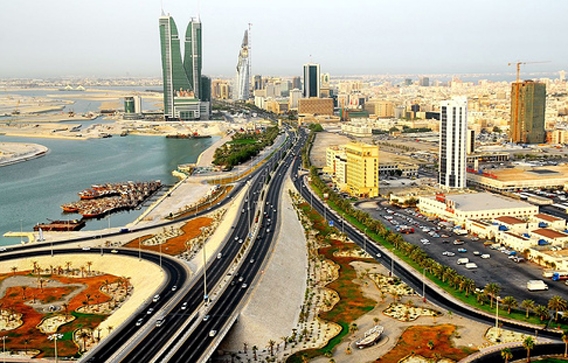Bahrain's annual gross domestic product (GDP) is expected to grow by 4-5 per cent in 2012, driven primarily by increases in crude oil production, manufacturing and government spending, the Economic Development Board (EDB) said. The EDB has given its growth outlook in the latest Bahrain Economic Quarterly report for the fourth-quarter of 2011 and first-quarter of 2012.
The report assesses the key economic indicators of the Kingdom during the period under review and says annual real output grew at 2.2pc in 2011 as the economy recovered faster than expected in the second-half of last year.
A statement by the EDB on the report said it relies on statistics from the Central Informatics Organisation (CIO) which indicated that after a sharp fall in the output in Q1-2011 due to the unrest last year, output returned to its previous level in Q3 and grew by 3.2pc in Q4-2011, as compared to the same period of the previous year.
The fastest growing sector in 2011 was transport and communications at 11pc, particularly significant as it is a large sector, accounting for almost 10pc of the national GDP. Other key sectors also saw positive growth – including government services at 5.6pc, downstream manufacturing at 3.9pc, finance services at 2.6pc and mining and quarrying (mostly crude oil output) at 3.2pc. The current account surplus was 12.6pc of GDP and the estimated fiscal deficit was 3.7pc of GDP.
Employment and inflation had almost no growth in 2011. Inflation, as measured by the Consumer Price Index (CPI), fell by 2.1pc in March 2011 compared to the same quarter a year earlier. Overall prices remained subdued beyond March, returning to pre-unrest levels in October 2011.
As for the current year, the report says while a fall in private sector demand and oversupply of commercial properties has slowed construction, government spending is projected to compensate and fuel construction for infrastructure, social housing and other social spending projects such as schools and hospitals.
The budgeted $10 billion ten-year GCC fund is likely to be dedicated to projects such as these, in addition to already planned spending by the government. The increase in oil output and high oil prices is also expected to produce large current account surpluses.
The report also includes an overview of Bahrain's public debt, expenditure, and revenues and shows that government spending has increased rapidly over the past decade, as debt has over the past three years. The revenue continues to be highly reliant on oil and volatile prices.
Daily Tribune
23 May







































































